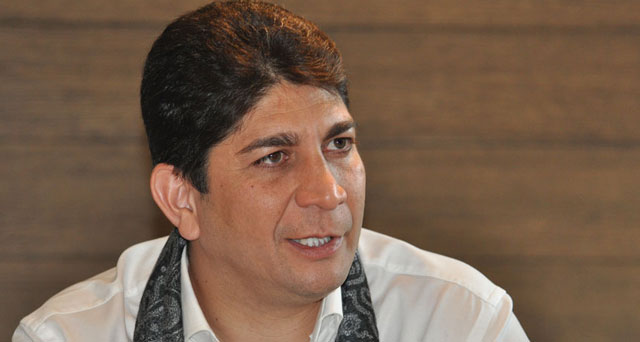
Access to radio frequency spectrum owned by Neotel would give Vodacom “some breathing room”, relaxing constraints on its ability to compete and allowing it to offer more 4G/LTE and 2G capacity on its networks.
This is according to Vodacom CEO Shameel Joosub, who was speaking at hearings at communications regulator Icasa into the proposed R7bn deal on Thursday morning. Vodacom and Neotel rivals, including MTN and Cell C, are opposing the deal at both Icasa and the Competition Commission.
But Joosub told Icasa on Thursday that the deal was essential for Vodacom if it was to compete effectively in wireless communications services.
“Vodacom is severely constrained by a lack of spectrum,” Joosub said. “We have the largest customer base of any mobile company in South Africa and our data traffic is growing faster than our competitors off a bigger base, yet we hold less mobile spectrum than Telkom or MTN.”
He said Vodacom has had to find ways to use its spectrum much more efficiently, but had reached the limits of what was possible technically.
The operator is frustrated that government hasn’t moved more quickly to make new spectrum available. The delay in South Africa’s migration from analogue to digital terrestrial television is also a barrier to opening up new spectrum.
Joosub said Vodacom has the largest number of 2G subscribers in South Africa. However, the company has had to redeploy some of this spectrum for 4G/LTE services.
“We can currently only shift spectrum to LTE services by taking it away from 2G services. We rob Peter to pay Paul,” he said. “That hurts the customer — particularly the less affluent customer who is more likely to be dependent on our 2G network.”
He claimed Vodacom’s constraints were “more severe” than those of its competitors as it had more customers and because its data traffic was growing faster.
“To try to cater for both services, Vodacom has built more sites than any other operator. Unfortunately, this is not sufficient to counter Vodacom’s spectrum disadvantage and it’s therefore more difficult for Vodacom to roll out LTE relative to its competitors.”
Joosub said Vodacom’s and Neotel’s businesses did not overlap “in any meaningful way”. Where they did, the overlap was “minor and the respective shares of the combined companies was very small”.
Joosub said again that the deal, if it was allowed to proceed, would have a big impact on the level of competition on fixed-line broadband.
“Vodacom will plan for a level of investment several times higher than Neotel’s current level of investment in fibre,” he said. “We will accelerate investment in fibre to the home and fibre to the business to create a wider footprint and better services. Customers will benefit, particularly those enterprise customers who currently have no realistic alternative to Telkom for their fixed services.”
Neotel, through its legal counsel, explained at the Icasa hearings that the company was seeking written permission to transfer control of its service and network licences as well its radio spectrum licences to Vodacom.
Spectrum trading isn’t permitted in South African law, but Neotel argued that because the two companies would continue to “exist and function as separate juristic persons” and as separate licensees, they were complying with the law.
The deal would comply with the restrictions and requirements of the Electronic Communications Act and related legislation and regulations, Neotel said.
“It makes no sense for Neotel or Vodacom to be engaged in a transaction that is aimed at breaching the law.” — © 2015 NewsCentral Media




